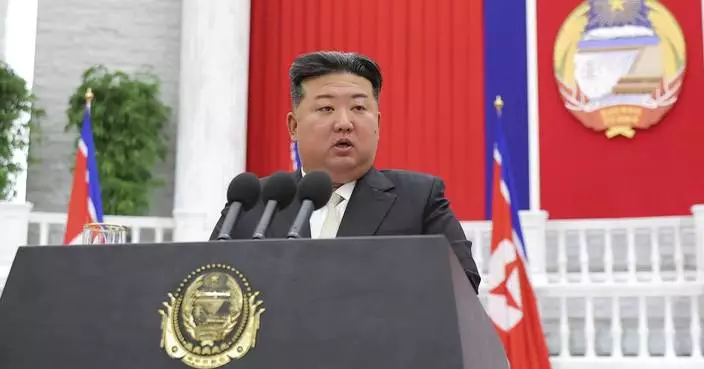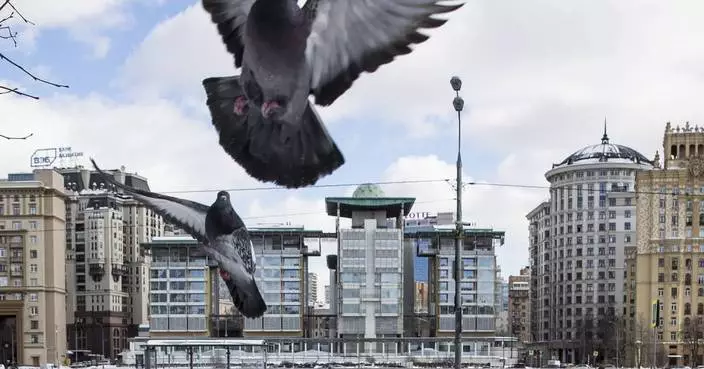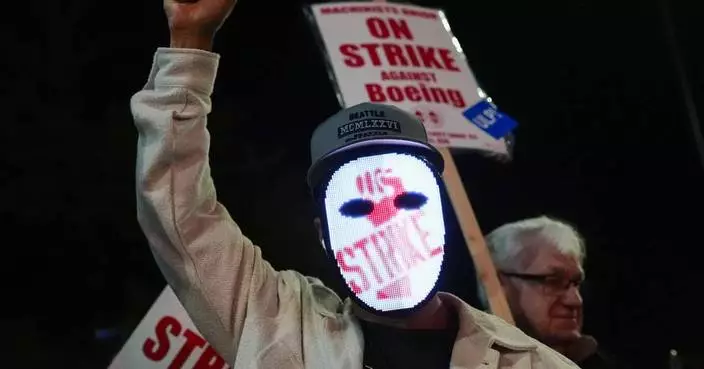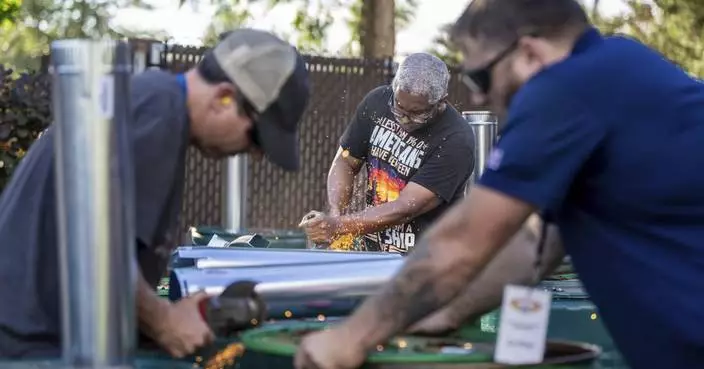JERUSALEM (AP) — A round of high-level talks in Cairo meant to bring about a cease-fire and hostage deal to at least temporarily end the 10-month Israel-Hamas war in Gaza ended Sunday without a final agreement, a U.S. official said. But talks will continue at lower levels in the coming days in an effort to bridge remaining gaps.
The official, who spoke on the condition of anonymity to discuss the talks, said lower level “working teams” will remain in Cairo to meet with mediators the United States, Qatar, and Egypt in hopes to addressing remaining disagreements. The official called the recent conversations, which began Thursday in Cairo and continued through Sunday, as “constructive” and said all parties were working to “reach a final and implementable agreement.”
Click to Gallery
JERUSALEM (AP) — A round of high-level talks in Cairo meant to bring about a cease-fire and hostage deal to at least temporarily end the 10-month Israel-Hamas war in Gaza ended Sunday without a final agreement, a U.S. official said. But talks will continue at lower levels in the coming days in an effort to bridge remaining gaps.
Iris Shitrit, seated left, the mother and relatives of Petty Officer 1st Class David Moshe Ben Shitrit, who was killed on a Hezbollah attack, mourn during his funeral at the Mount Herzl military cemetery in Jerusalem, Sunday, Aug. 25, 2024. (AP Photo/Ohad Zwigenberg)
Israeli Navy sailors carry the flag-draped coffin of Petty Officer 1st Class David Moshe Ben Shitrit, who was killed on a Hezbollah attack, during his funeral at the Mount Herzl military cemetery in Jerusalem, Sunday, Aug. 25, 2024. (AP Photo/Ohad Zwigenberg)
ADDS MOTHER"S NAME The mother, Iris Shitrit, center, of Petty Officer 1st Class David Moshe Ben Shitrit, who was killed on a Hezbollah attack, mourns during the funeral of her son at the Mount Herzl military cemetery in Jerusalem, Sunday, Aug. 25, 2024. (AP Photo/Ohad Zwigenberg)
Israeli Navy sailors mourn during the funeral of Petty Officer 1st Class David Moshe Ben Shitrit, who was killed on a Hezbollah attack, at the Mount Herzl military cemetery in Jerusalem, Sunday, Aug. 25, 2024. (AP Photo/Ohad Zwigenberg)
A makeshift memorial in a roundabout near where 12 Druze children were killed in a July rocket strike on a soccer pitch in Majdal Shams in the Israel-controlled Golan Heights, Sunday, Aug. 25, 2024, hours after Israel and Lebanon traded fire. (AP Photo/Maya Alleruzzo)
A man pauses at a makeshift memorial for 12 Druze children killed in a July rocket strike on a soccer field in Majdal Shams in the Israel-controlled Golan Heights, Sunday, Aug. 25, 2024, hours after Israel and Lebanon traded fire. (AP Photo/Maya Alleruzzo)
People listen to a speech by Hezbollah leader Sayyed Hassan Nasrallah broadcasted on Hezbollah's al-Manar television channel, at a coffee shop in a southern suburb of Beirut, Lebanon, Sunday, Aug. 25, 2024, hours after Israel and Hezbollah traded heavy fire. (AP Photo/Bilal Hussein)
A woman stands on broken glass from the window in her bedroom following an attack from Lebanon, in Acre, north Israel, Sunday, Aug. 25, 2024. (AP Photo/Ariel Schalit)
A man looks at a damaged window of a house following an attack from Lebanon, in Acre, north Israel, Sunday, Aug. 25, 2024. (AP Photo/Ariel Schalit)
A damaged house is seen following an attack from Lebanon, in Acre, north Israel, Sunday, Aug. 25, 2024. (AP Photo/Ariel Schalit)
A woman stands on the doorway of a damaged house following an attack from Lebanon, in Acre, north Israel, Sunday, Aug. 25, 2024. (AP Photo/Ariel Schalit)
A man takes a shower on the edge of beach after local authorities restricted the public access to the beaches of Haifa, following the attacks from Lebanon, in northern Israel, Sunday, Aug. 25, 2024. (AP Photo/Ariel Schalit)
An Israeli Apache helicopter flies over Israel, Sunday, Aug. 25, 2024. (AP Photo/Ariel Schalit)
An Israeli Apache helicopter flies over Israel, Sunday, Aug. 25, 2024. (AP Photo/Ariel Schalit)
Israeli Apache helicopters fly toward northern Israel, Sunday, Aug. 25, 2024. (AP Photo/Ariel Schalit)
The talks included CIA director William Burns and David Barnea, the head of Israel’s Mossad intelligence agency. A Hamas delegation was briefed by Egyptian and Qatari mediators but did not directly take part in negotiations.
The development came after Israel and the Lebanese militant group Hezbollah traded heavy fire early Sunday but backed off from sparking a widely feared all-out war, as both sides signaled their most intense exchange in months was over.
Hezbollah claimed to hit an Israeli military intelligence site near Tel Aviv as part of a barrage of hundreds of rockets and drones, and Israel claimed its dozens of strikes had been preemptive to avert a larger attack. Neither offered evidence.
Hezbollah leader Hassan Nasrallah said the attack, a response to Israel’s killing of a top militant commander in Beirut last month, had been delayed to give the Gaza cease-fire talks a chance, and so fellow Iran-backed groups could discuss with Iran whether to attack Israel all at once. Israeli and U.S. military deployment also played a role.
“We will now reserve the right to respond at a later time” if the results of Sunday’s attack aren’t sufficient, Nasrallah said, adding that allied Houthi rebels in Yemen -- and Iran itself -- had yet to respond. But he told the Lebanese people: “At this current stage, the country can take a breath and relax.”
Israel and Hezbollah said they aimed only at military targets. Israel said no military target was hit by Hezbollah but that one soldier with its navy was killed and two others were wounded either by an interceptor for incoming fire, or by shrapnel from one. Two Hezbollah fighters and a militant from an allied group were killed, the groups said.
Israeli Prime Minister Benjamin Netanyahu said the military eliminated thousands of rockets that were aimed at northern Israel and shot down drones heading for the center of the country.
“I repeat — this is not the end of the story," he added.
Air raid sirens were reported throughout northern Israel, and Israel's international airport closed and diverted flights for about an hour.
Israel’s military spokesperson, Rear Adm. Daniel Hagari, said about 100 Israeli planes struck 270 targets, 90% of them rocket launchers aimed at northern Israel. He said they were investigating the percentage of incoming rockets and drones intercepted but said the “vast majority” were thwarted.
Hezbollah said its attack involved more than 320 Katyusha rockets aimed at multiple sites in Israel and a “large number” of drones.
Some Israelis were shaken. In the northern city of Acre, retired teacher Saadia Even Tsur, 76, said he was at the synagogue and arrived home five minutes after his bedroom was damaged. “I went up and saw the size of the miracle that happened to me,” he said. A window was broken and debris was on the bed.
Lebanon’s caretaker Economy Minister Amin Salam, after an emergency government meeting, said officials were “feeling a bit more optimistic” about a de-escalation after both sides confirmed that the operations had ended.
President Joe Biden was “closely monitoring events in Israel and Lebanon," according to Sean Savett, a spokesman for the National Security Council. The Pentagon said Defense Secretary Lloyd Austin spoke with his Israeli counterpart, Yoav Gallant, and ordered both U.S. carrier strike groups in the region to stay. The U.S. military has been building up its forces across the region in recent weeks.
The chairman of the Joint Chiefs of Staff, Gen. CQ Brown, arrived in Israel late Sunday for meetings on what the Israeli military called “joint preparations in the region as part of the response to threats in the Middle East.”
Danny Citrinowicz, an expert at Israel’s Institute for National Security Studies, said Hezbollah might be trying to “balance the equation without escalating into war.” Each side hopes their narrative will be sufficient for them to declare victory and avoid a wider confrontation, he said.
Hezbollah began attacking Israel almost immediately after the start of the war in Gaza, which was triggered by Hamas' Oct. 7 attack into southern Israel. Israel and Hezbollah have exchanged fire almost daily, displacing tens of thousands of people on both sides of the border.
Hezbollah, which fought Israel to a stalemate in 2006, is believed to be far more powerful now. The United States and Israel estimate it has some 150,000 rockets and is capable of hitting anywhere inside Israel. The group has also developed drones capable of evading Israel's defenses, as well as precision-guided munitions.
Israel has vowed a crushing response to any major Hezbollah attack. It has an extensive multi-tiered missile defense system, and it is backed by a U.S.-led coalition that helped it shoot down hundreds of missiles and drones fired from Iran earlier this year.
Hezbollah is a close ally of Iran, which has also threatened to retaliate against Israel for the killing of senior Hamas leader Ismail Haniyeh in Tehran last month. Israel has not said whether it was involved.
Iranian state media played up the Hezbollah attack, calling it a success, but there was no immediate comment from Iranian officials.
The U.S. and other mediators see a cease-fire in Gaza as key to averting a wider Mideast war. Hezbollah has said it will halt its strikes on Israel if there is a cease-fire.
In the occupied West Bank, Israel's military said it killed two people who allegedly tried to run over soldiers in Ariel, slightly hurting one.
Madhani reported from Dover Air Force Base, Delaware. Sewell and Chehayeb reported from Beirut. Associated Press writers Melanie Lidman in Tel Aviv, Israel; Samy Magdy in Cairo; and Alexis Triboulard in Acre, Israel contributed.
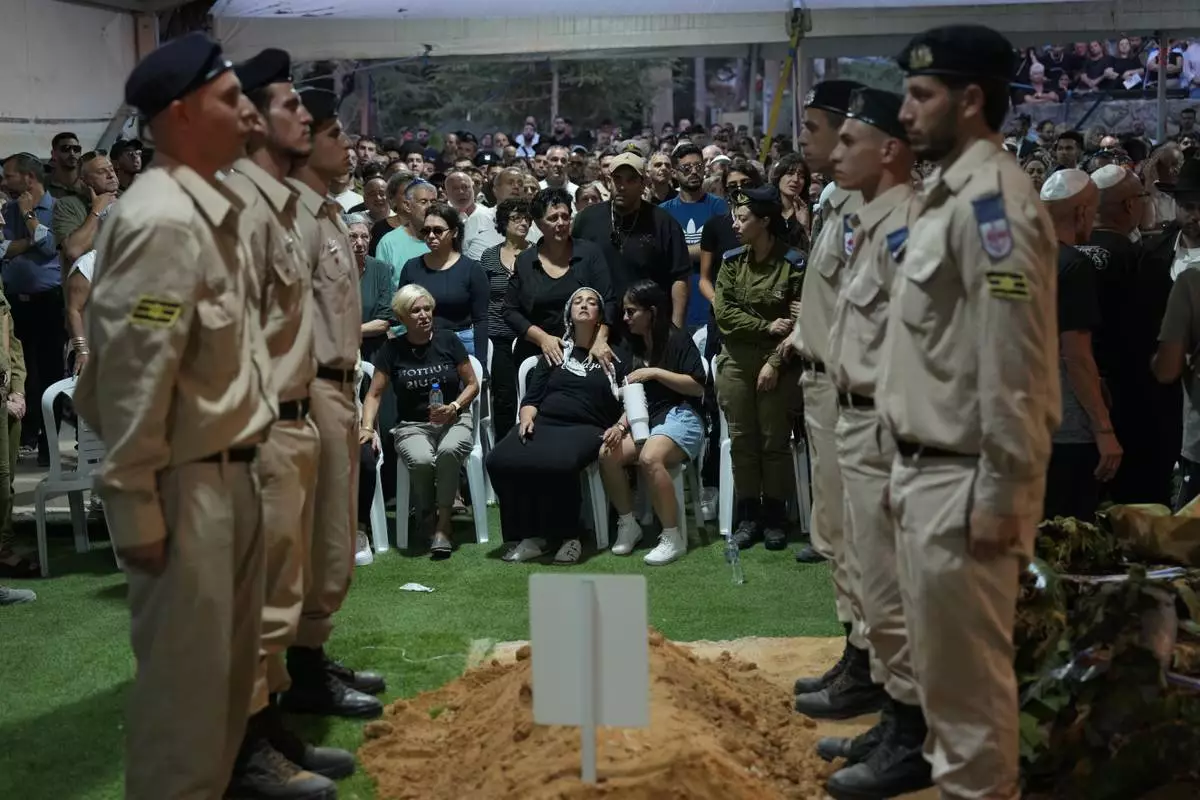
Relatives of Petty Officer 1st Class David Moshe Ben Shitrit, who was killed on a Hezbollah attack, mourn during his funeral at the Mount Herzl military cemetery in Jerusalem, Sunday, Aug. 25, 2024. (AP Photo/Ohad Zwigenberg)
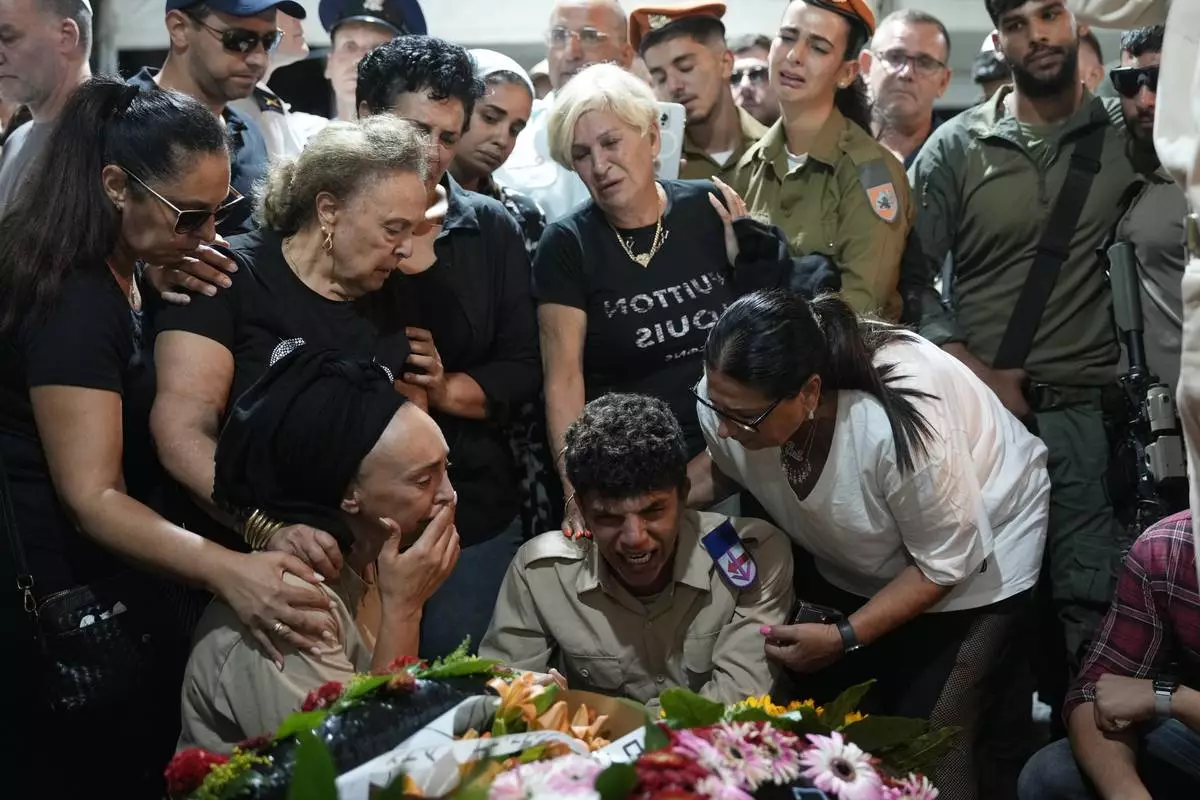
Iris Shitrit, seated left, the mother and relatives of Petty Officer 1st Class David Moshe Ben Shitrit, who was killed on a Hezbollah attack, mourn during his funeral at the Mount Herzl military cemetery in Jerusalem, Sunday, Aug. 25, 2024. (AP Photo/Ohad Zwigenberg)
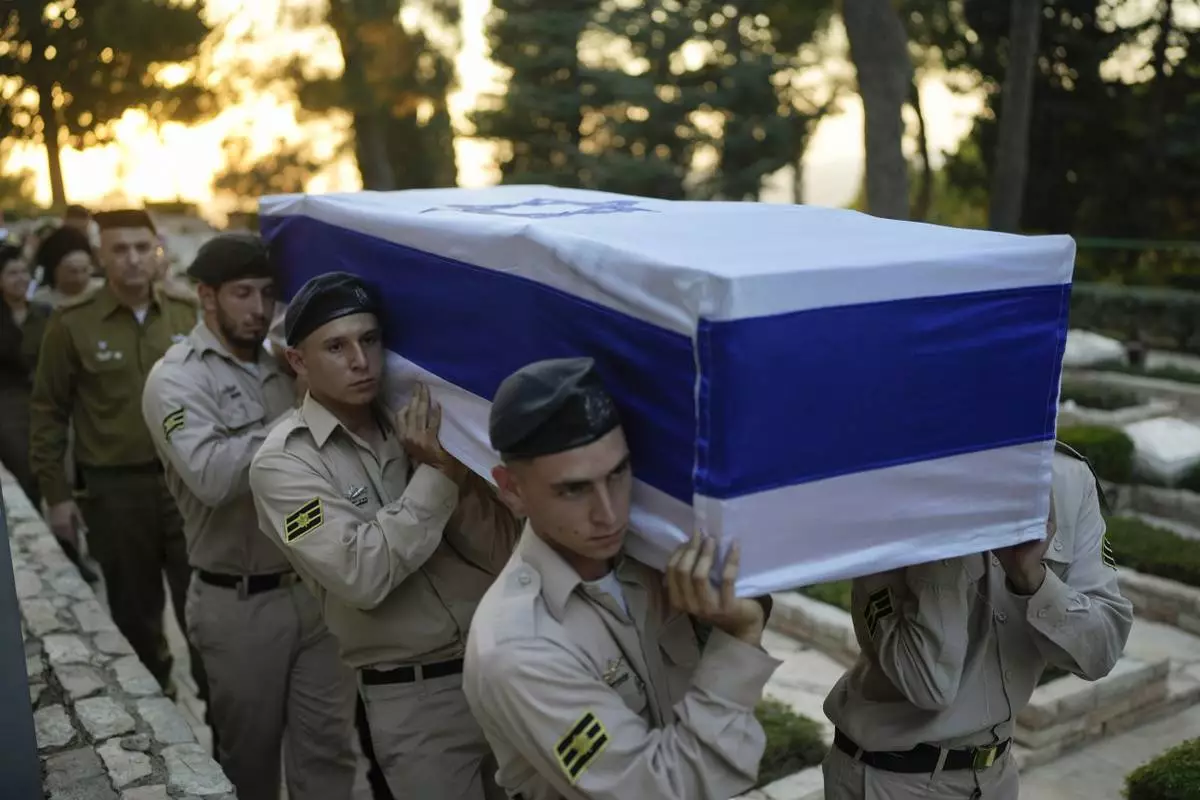
Israeli Navy sailors carry the flag-draped coffin of Petty Officer 1st Class David Moshe Ben Shitrit, who was killed on a Hezbollah attack, during his funeral at the Mount Herzl military cemetery in Jerusalem, Sunday, Aug. 25, 2024. (AP Photo/Ohad Zwigenberg)
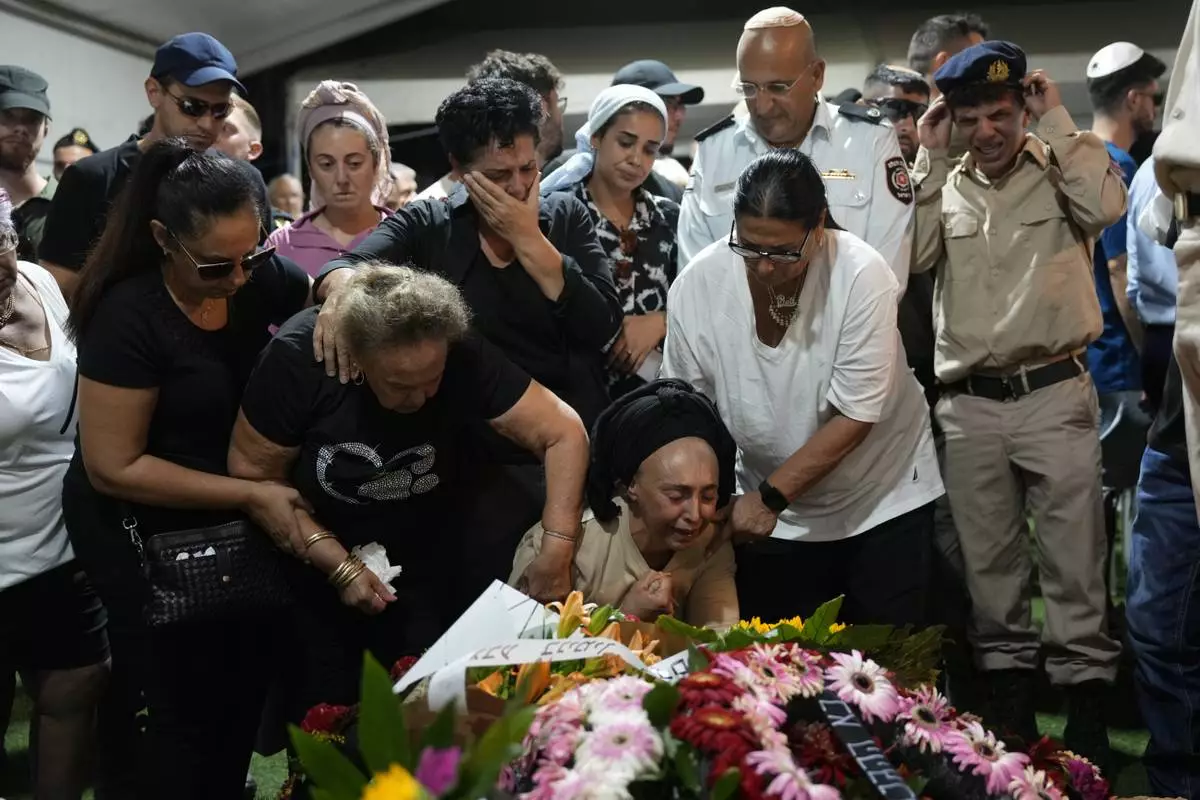
ADDS MOTHER"S NAME The mother, Iris Shitrit, center, of Petty Officer 1st Class David Moshe Ben Shitrit, who was killed on a Hezbollah attack, mourns during the funeral of her son at the Mount Herzl military cemetery in Jerusalem, Sunday, Aug. 25, 2024. (AP Photo/Ohad Zwigenberg)

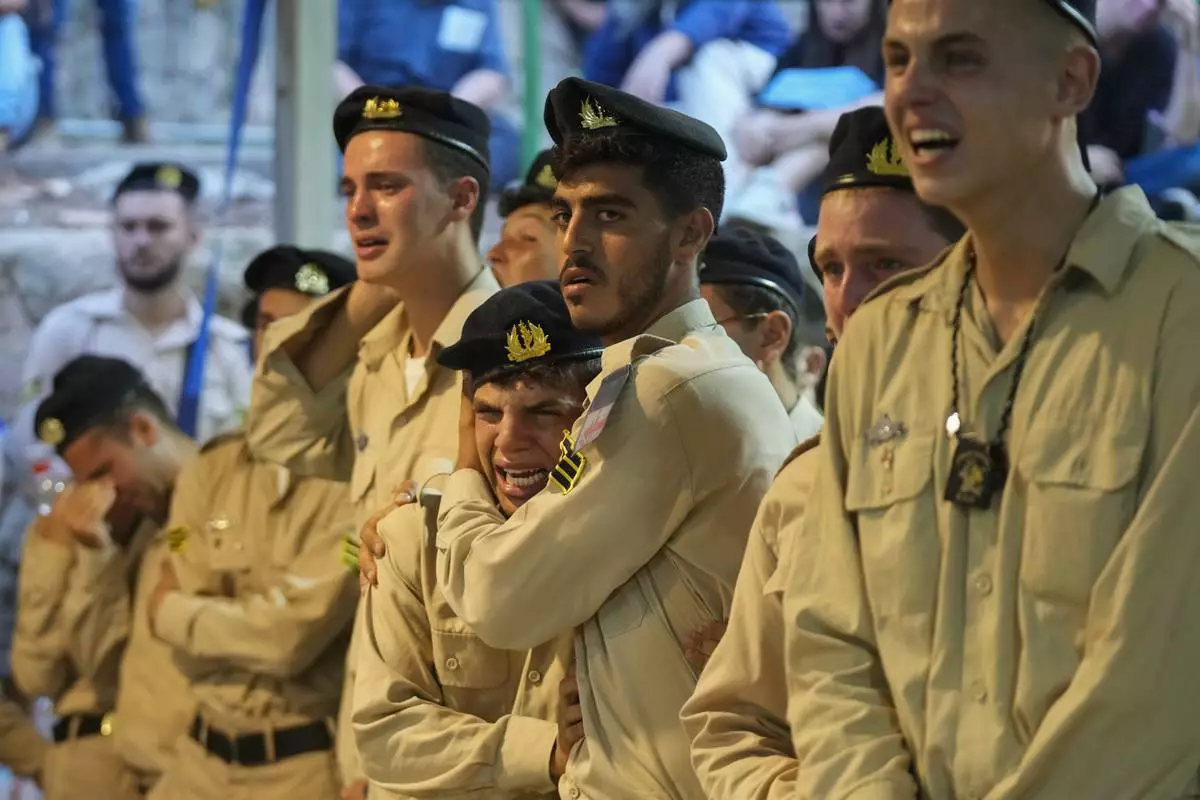
Israeli Navy sailors mourn during the funeral of Petty Officer 1st Class David Moshe Ben Shitrit, who was killed on a Hezbollah attack, at the Mount Herzl military cemetery in Jerusalem, Sunday, Aug. 25, 2024. (AP Photo/Ohad Zwigenberg)
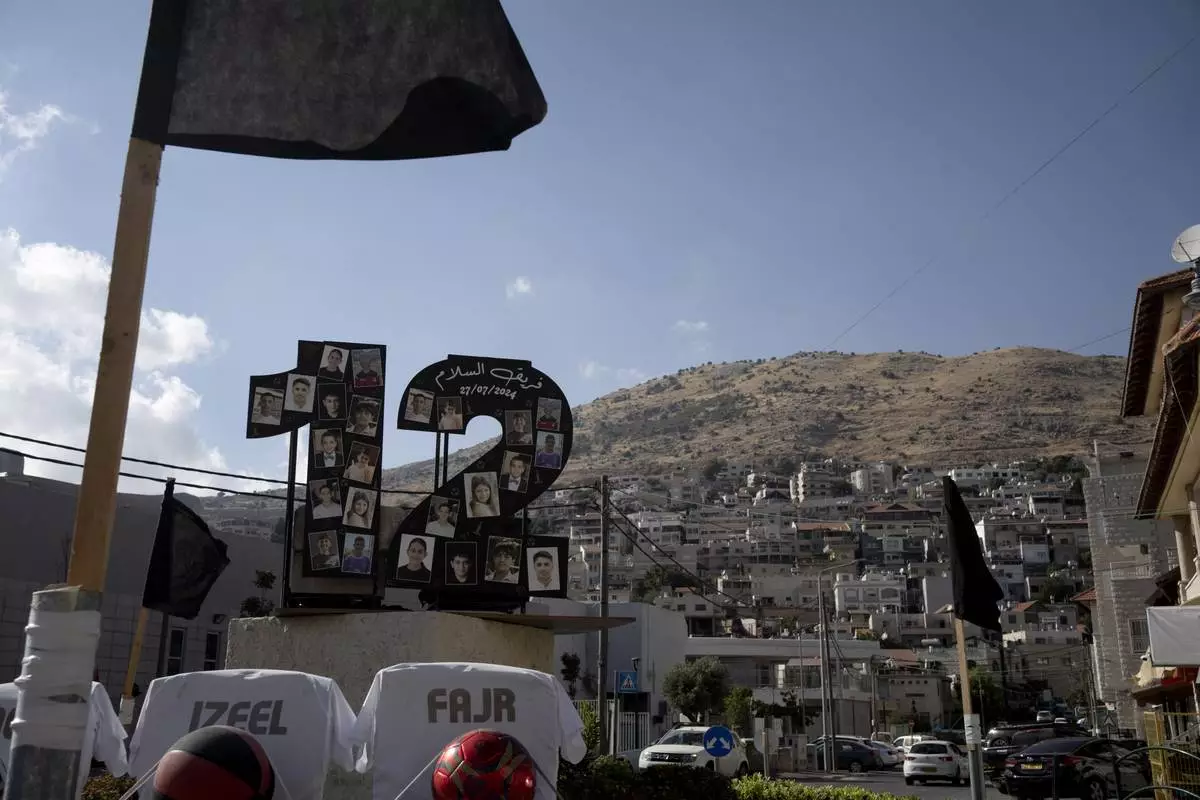
A makeshift memorial in a roundabout near where 12 Druze children were killed in a July rocket strike on a soccer pitch in Majdal Shams in the Israel-controlled Golan Heights, Sunday, Aug. 25, 2024, hours after Israel and Lebanon traded fire. (AP Photo/Maya Alleruzzo)
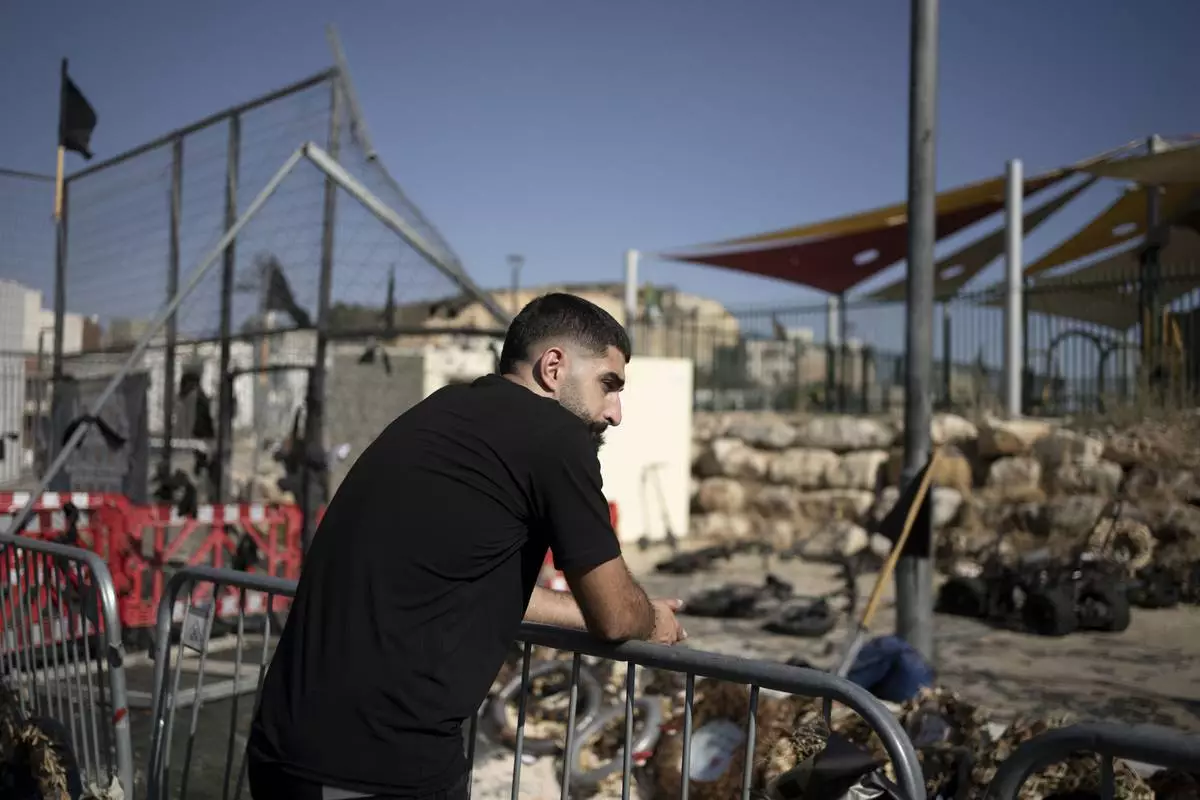
A man pauses at a makeshift memorial for 12 Druze children killed in a July rocket strike on a soccer field in Majdal Shams in the Israel-controlled Golan Heights, Sunday, Aug. 25, 2024, hours after Israel and Lebanon traded fire. (AP Photo/Maya Alleruzzo)
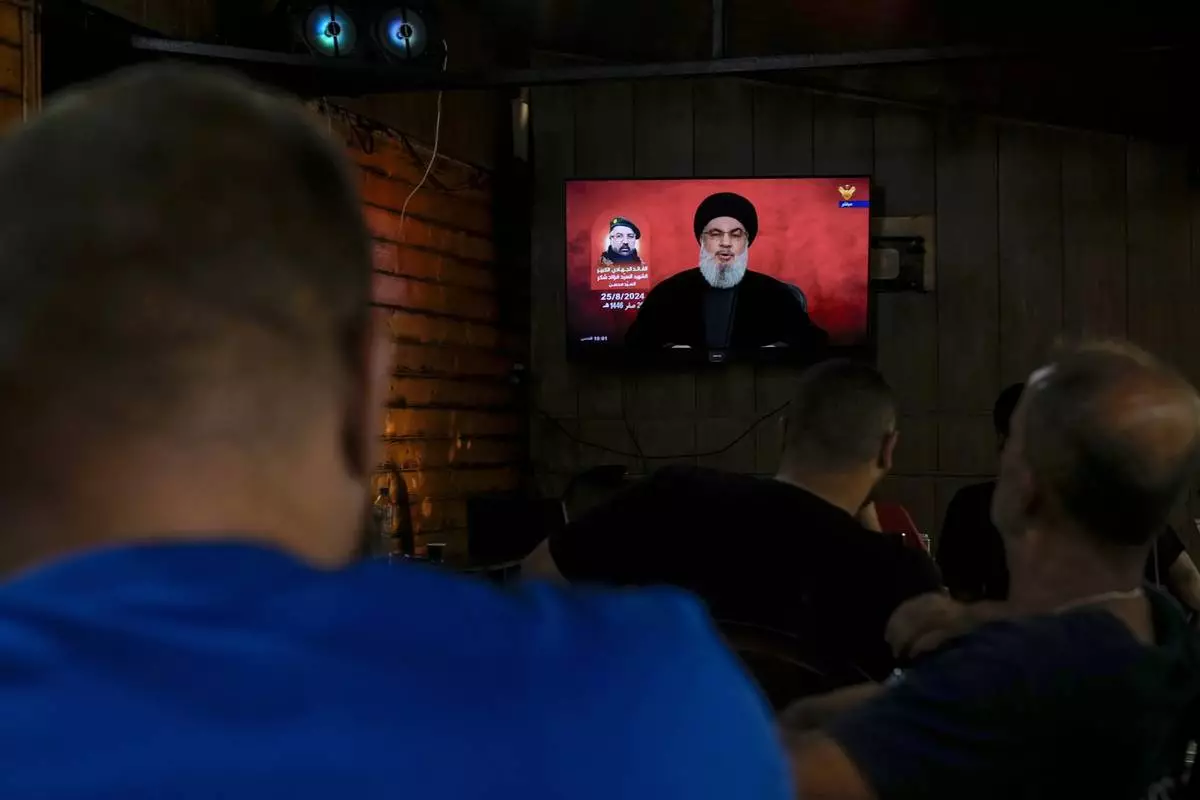
People listen to a speech by Hezbollah leader Sayyed Hassan Nasrallah broadcasted on Hezbollah's al-Manar television channel, at a coffee shop in a southern suburb of Beirut, Lebanon, Sunday, Aug. 25, 2024, hours after Israel and Hezbollah traded heavy fire. (AP Photo/Bilal Hussein)

A woman stands on broken glass from the window in her bedroom following an attack from Lebanon, in Acre, north Israel, Sunday, Aug. 25, 2024. (AP Photo/Ariel Schalit)
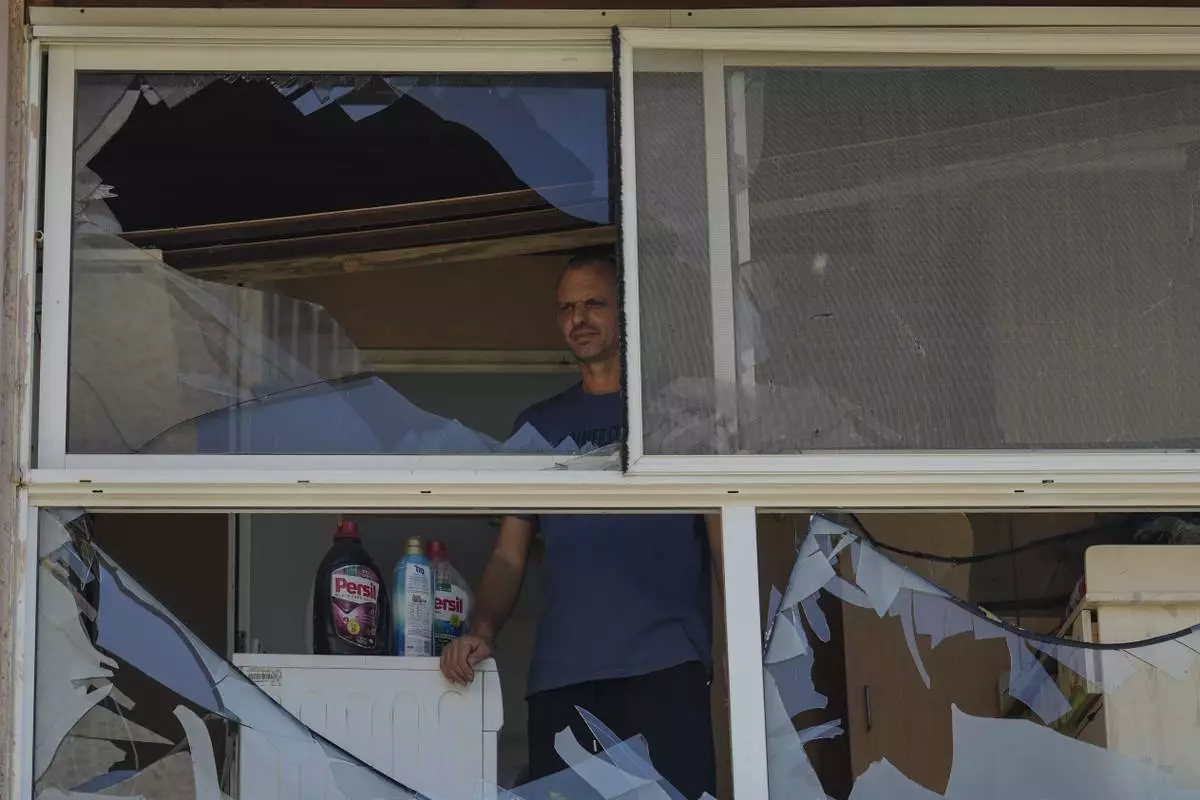
A man looks at a damaged window of a house following an attack from Lebanon, in Acre, north Israel, Sunday, Aug. 25, 2024. (AP Photo/Ariel Schalit)
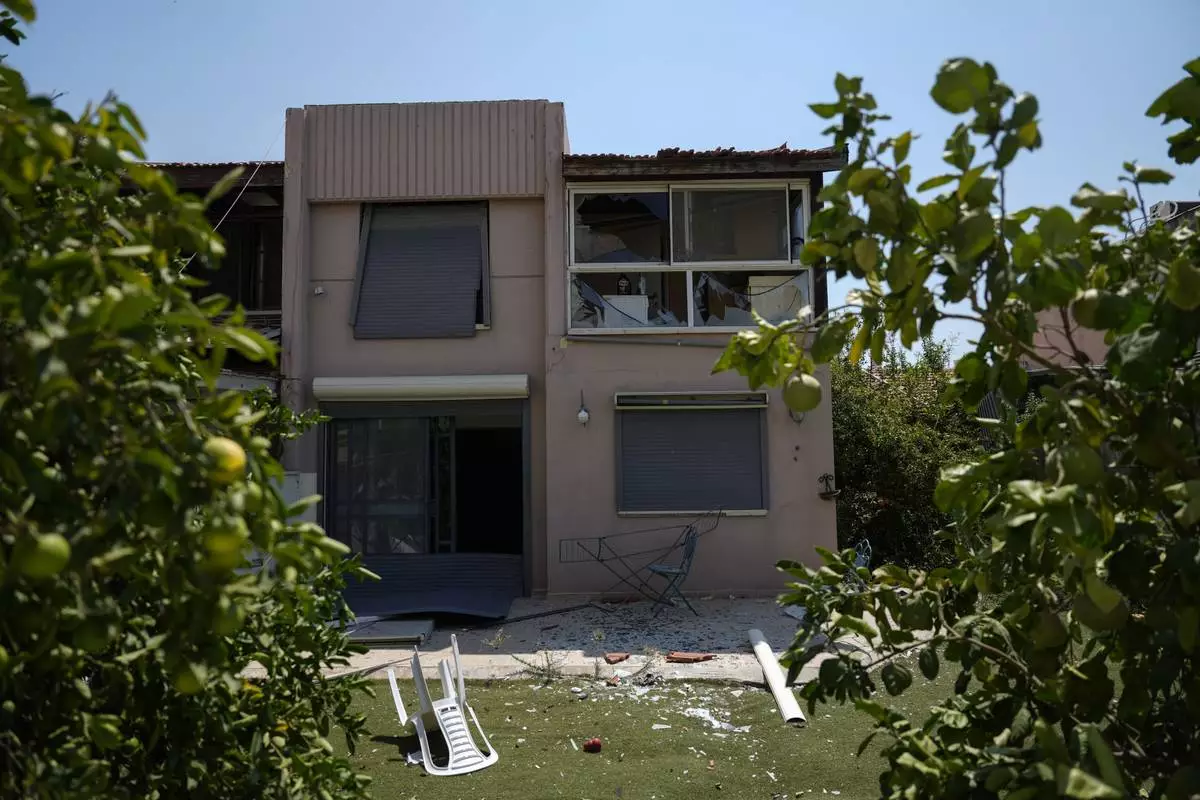
A damaged house is seen following an attack from Lebanon, in Acre, north Israel, Sunday, Aug. 25, 2024. (AP Photo/Ariel Schalit)
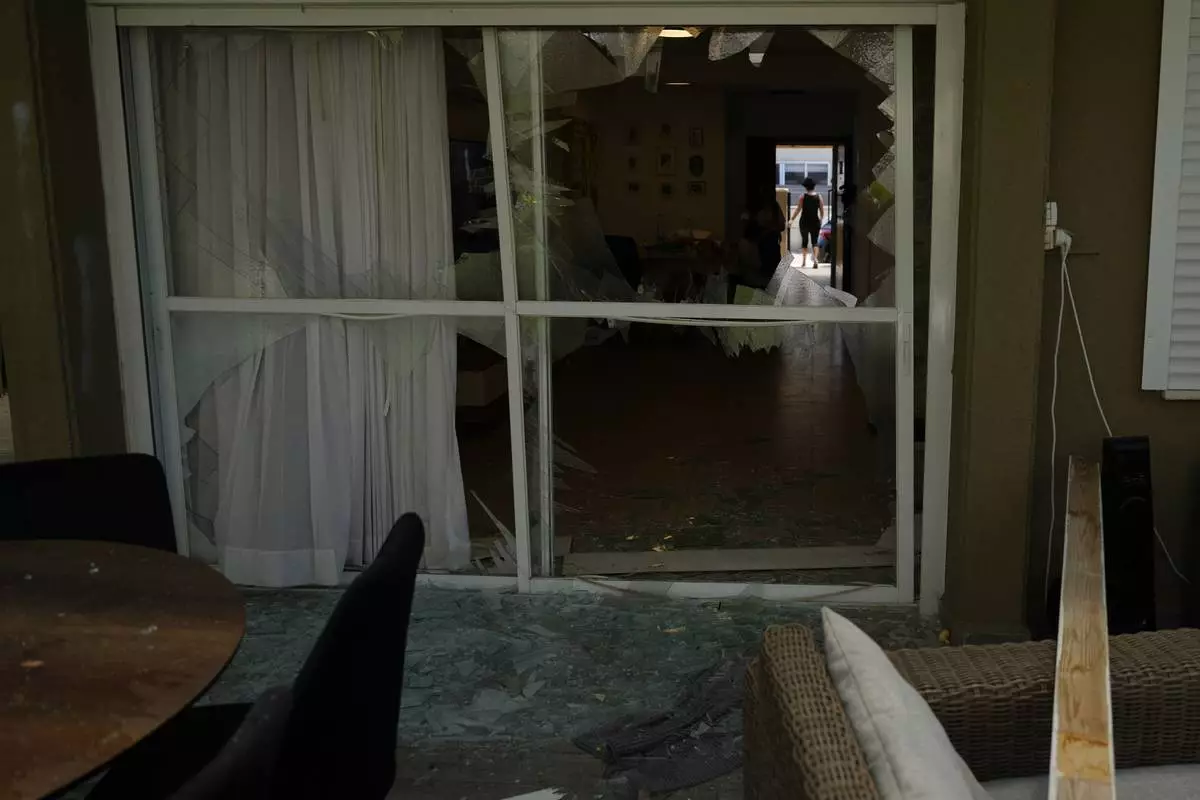
A woman stands on the doorway of a damaged house following an attack from Lebanon, in Acre, north Israel, Sunday, Aug. 25, 2024. (AP Photo/Ariel Schalit)

A man takes a shower on the edge of beach after local authorities restricted the public access to the beaches of Haifa, following the attacks from Lebanon, in northern Israel, Sunday, Aug. 25, 2024. (AP Photo/Ariel Schalit)
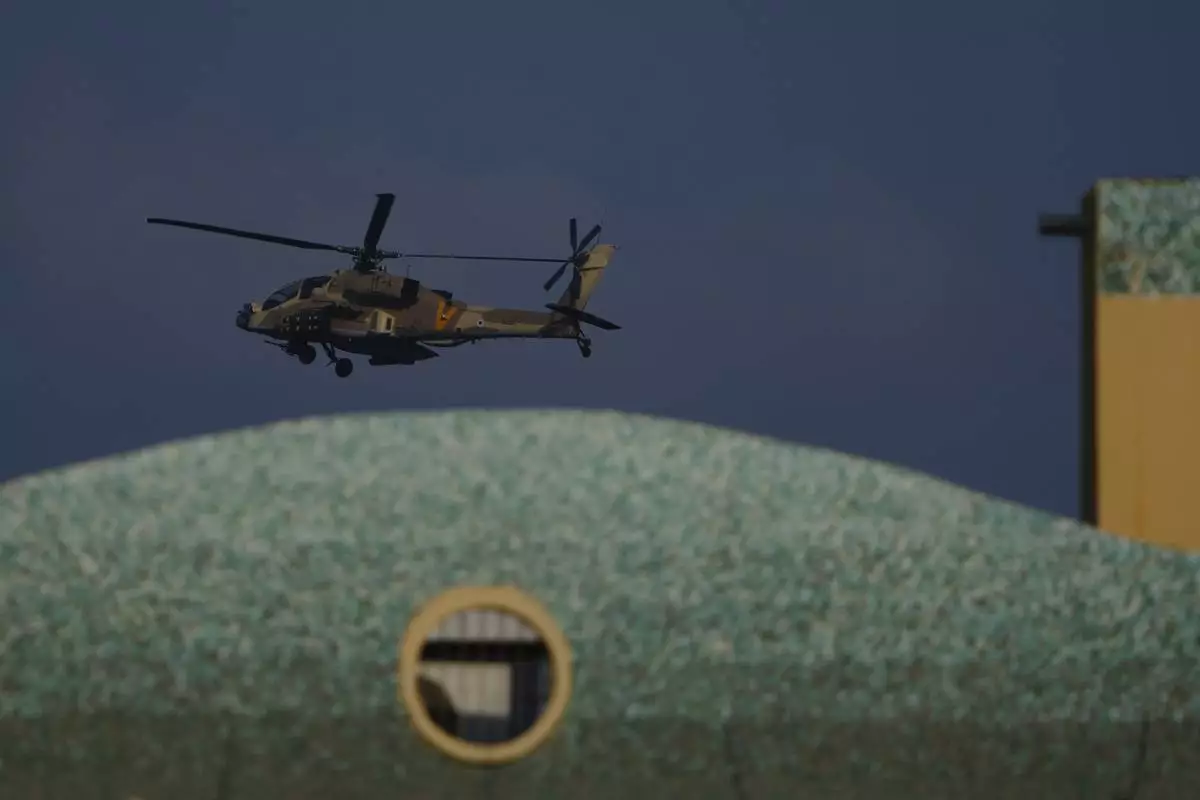
An Israeli Apache helicopter flies over Israel, Sunday, Aug. 25, 2024. (AP Photo/Ariel Schalit)
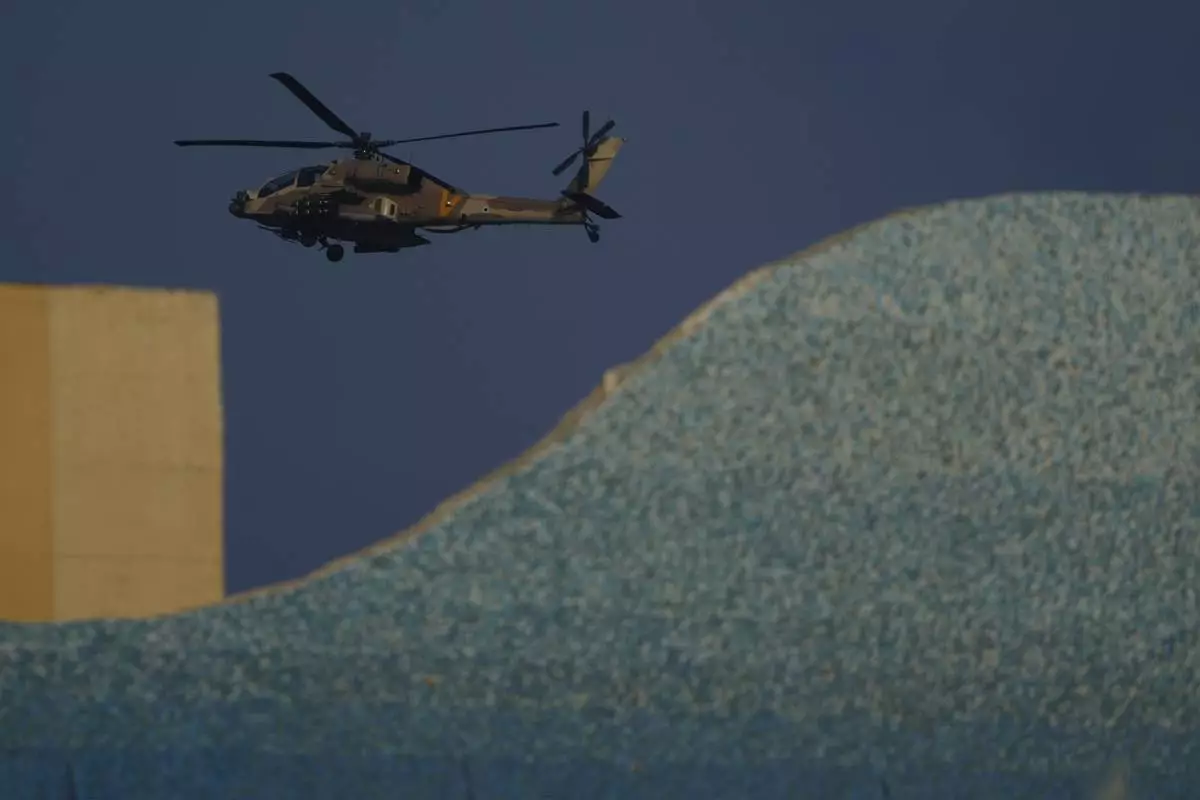
An Israeli Apache helicopter flies over Israel, Sunday, Aug. 25, 2024. (AP Photo/Ariel Schalit)
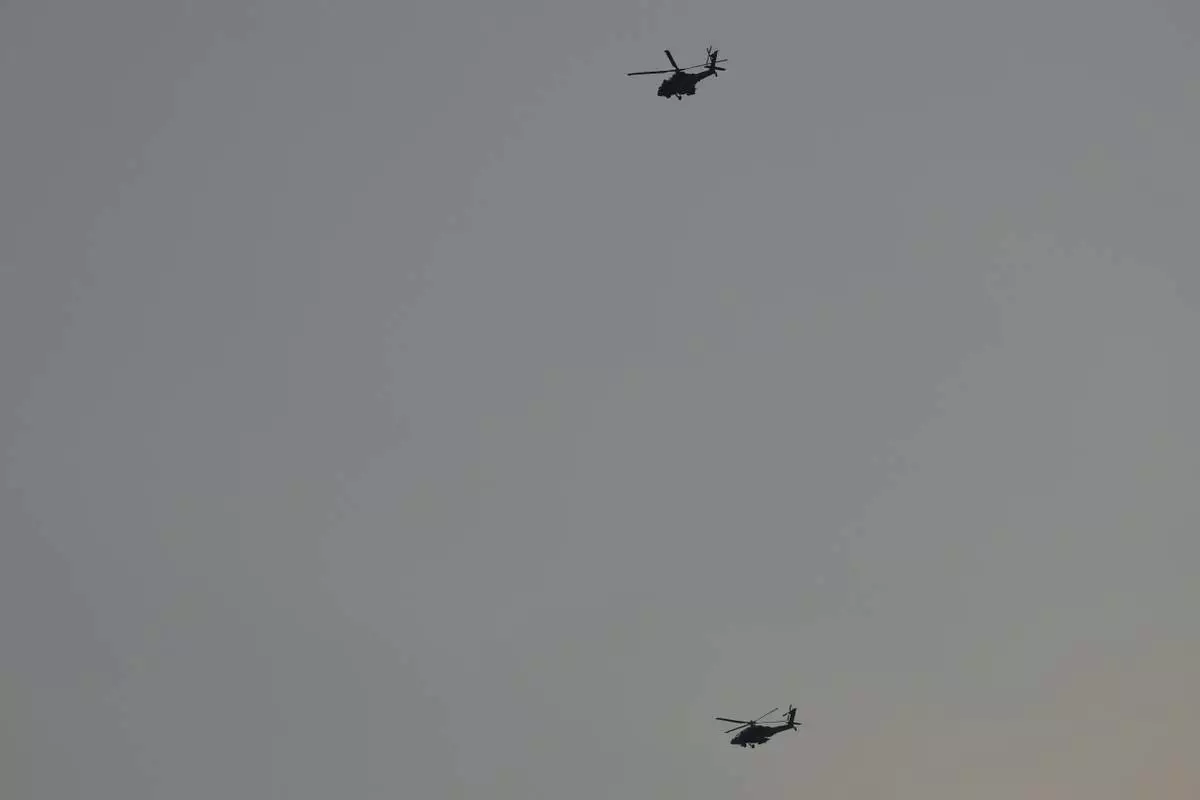
Israeli Apache helicopters fly toward northern Israel, Sunday, Aug. 25, 2024. (AP Photo/Ariel Schalit)
WASHINGTON (AP) — United States President Joe Biden and British Prime Minister Keir Starmer are meeting Friday amid an intensified push by Ukraine to loosen restrictions on using weapons provided by the U.S. and Britain to strike Russia.
The talks come amid signs that the White House could be moving toward a shift in its policy, and as Russia’s President Vladimir Putin warned that Ukraine’s use of long-range weapons would put NATO at war with Moscow.
Ukrainian officials renewed their pleas to use Western-provided long-range missiles against targets deeper inside Russia during this week’s visit to Kyiv by U.S. Secretary of State Antony Blinken and U.K. Foreign Secretary David Lammy. Blinken said he had “no doubt” that Biden and Starmer would discuss the matter during their visit, noting the U.S. has adapted and “will adjust as necessary” as Russia’s battlefield strategy has changed.
The language is similar to what Blinken said in May, shortly before the U.S. allowed Ukraine to use American-provided weapons just inside Russian territory. The distance has been largely limited to cross-border targets deemed a direct threat out of concerns about further escalating the conflict.
While the issue is expected to be at the top of the leaders’ agenda, it appeared unlikely that Biden and Starmer would announce any policy changes during this week’s visit, according to two U.S. officials familiar with planning for the leaders' talks who spoke on condition of anonymity because they weren't authorized to discuss the private deliberations.
In addition to Blinken, Biden also has hinted a change could be afoot. In an exchange with reporters earlier this week about whether he was ready to ease weapons restrictions on Ukraine, he responded, “We’re working that out now.”
Putin warned Thursday that allowing long-range strikes “would mean that NATO countries, the United States, and European countries are at war with Russia. … If this is so, then, bearing in mind the change in the very essence of this conflict, we will make appropriate decisions based on the threats that will be created for us.”
His remarks were in line with the narrative the Kremlin has actively promoted since early in the Ukraine war, accusing NATO countries of de-facto participation in the conflict and threatening a response.
Earlier in the year, Putin warned that Russia could provide long-range weapons to others to strike Western targets in response to NATO allies allowing Ukraine to use their arms to attack Russian territory, saying it “would mark their direct involvement in the war against the Russian Federation, and we reserve the right to act the same way.”
Starmer, in response to the Russian leader's Thursday comments, said on his way to the U.S. that Britain does not seek any conflict with Russia.
“Russia started this conflict. Russia illegally invaded Ukraine. Russia could end this conflict straight away,” Starmer told reporters. “Ukraine has the right to self-defense and we’ve obviously been absolutely fully supportive of Ukraine’s right to self-defense — we’re providing training capability, as you know."
“But we don’t seek any conflict with Russia — that’s not our intention in the slightest,” Starmer said.
Ukrainian President Volodymyr Zelenskyy has pressed U.S. and allied military leaders to go much further. He argues that the U.S. must allow Ukraine to target Russian air bases and launch sites far from the border as Russia has stepped up assaults on Ukraine’s electricity grid and utilities ahead of the coming winter.
Zelenskyy also wants more long-range weaponry from the United States, including the Army Tactical Missile System, known as ATACMS, for strikes in Russia.
ATACMS wouldn’t be the answer to the main threat Ukraine faces from long-range Russian glide bombs, which are being fired from more than 300 kilometers (185 miles) away, beyond the ATACMS' reach, said Lt. Col. Charlie Dietz, Pentagon spokesperson.
American officials also don’t believe they have enough of the weapon systems available to provide Ukraine with the number to make a substantive difference to conditions on the ground, one of the U.S. officials said.
During a meeting of allied defense ministers last week, Defense Secretary Lloyd Austin said he did not believe providing Ukraine with long-range weapon systems would be a game-changer in the grueling war. He noted that Ukraine has already been able to strike inside Russia with its own internally produced systems, including drones.
“I don’t believe one capability is going to be decisive, and I stand by that comment,” Austin said.
“As of right now, the policy has not changed," Maj. Gen. Pat Ryder, Pentagon press secretary, said Thursday.
Starmer said he was visiting Washington for “strategic meetings to discuss Ukraine and to discuss the Middle East.” It’s the prime minister’s second meeting with Biden since his center-left government was elected in July.
It comes after Britain last week diverged from the U.S. by suspending some arms exports to Israel because of the risk they could be used to break international law. Both countries have downplayed their differences over the issue.
Biden and Starmer’s meeting also comes ahead of this month’s annual meeting of global leaders at the United Nations General Assembly. The Oval Office meeting was scheduled in part to help the two leaders compare notes on the war in Ukraine, languishing efforts to get a cease-fire deal in Gaza and other issues ahead of the U.N. meeting.
The White House also has sought in recent days to put a greater emphasis on the nexus between the war in Ukraine and conflict in the Middle East sparked after Iranian-backed Hamas militants in Gaza launched attacks on Israel on Oct. 7.
The Biden administration said this week that Iran recently delivered short-range ballistic weapons to Russia to use against Ukraine, a transfer that White House officials worry will allow Russia to use more of its arsenal for targets far beyond the Ukrainian front line while employing Iranian warheads for closer-range targets.
In turn, the U.S. administration says Russia has been tightening its relationship with Iran, including by providing it with nuclear and space technology.
“This is obviously deeply concerning,” White House national security spokesperson John Kirby said of the missile transfer. “And it certainly speaks to the manner in which this partnership threatens European security and how it illustrates Iran’s destabilizing influence now reaches well beyond the Middle East.”
AP reporters Tara Copp in Washington, Jill Lawless in London, Matthew Lee in Warsaw, Poland, and Dasha Litvinova in Tallinn, Estonia, contributed.
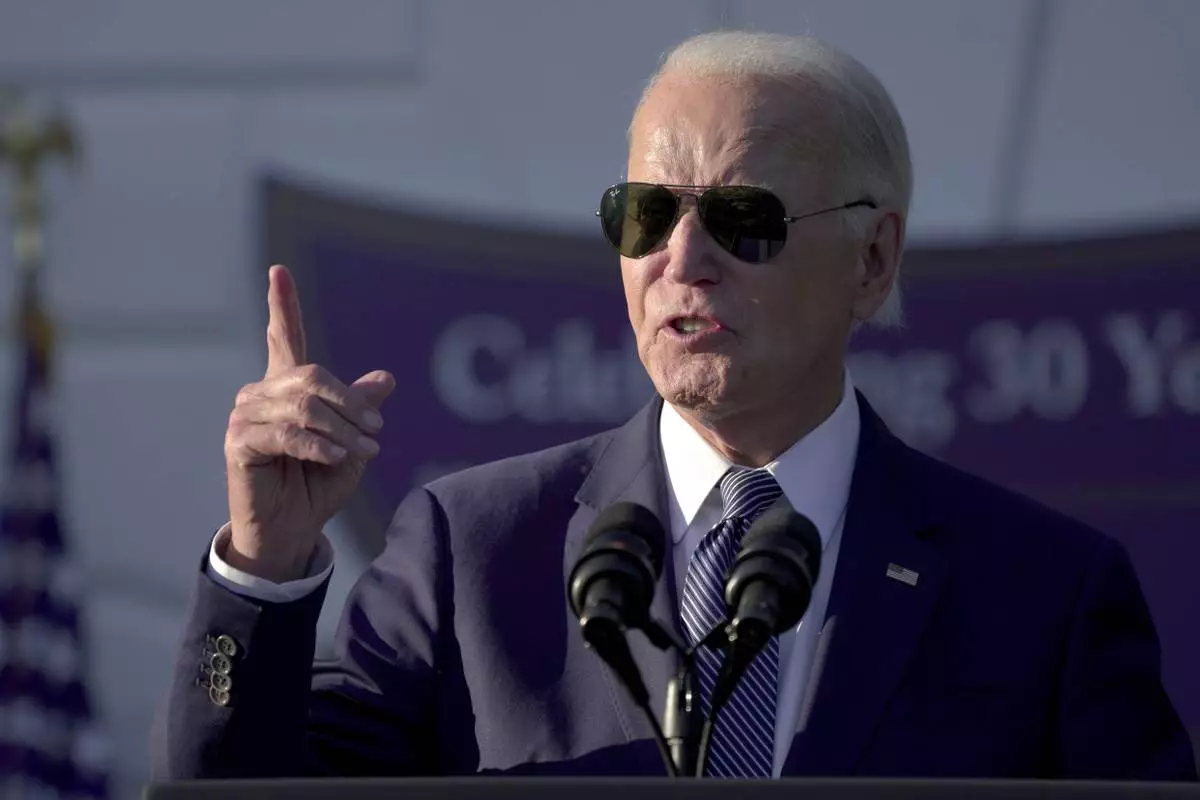
President Joe Biden speaks during the Violence Against Women Act 30th anniversary celebration on the South Lawn of the White House, Thursday, Sept. 12, 2024, in Washington. (AP Photo/Manuel Balce Ceneta)

Britain's Prime Minister Keir Starmer, center, talks to the media on board his plane as he flies to Washington DC., Thursday Sept. 12, 2024. (Stefan Rousseau/Pool via AP)






































